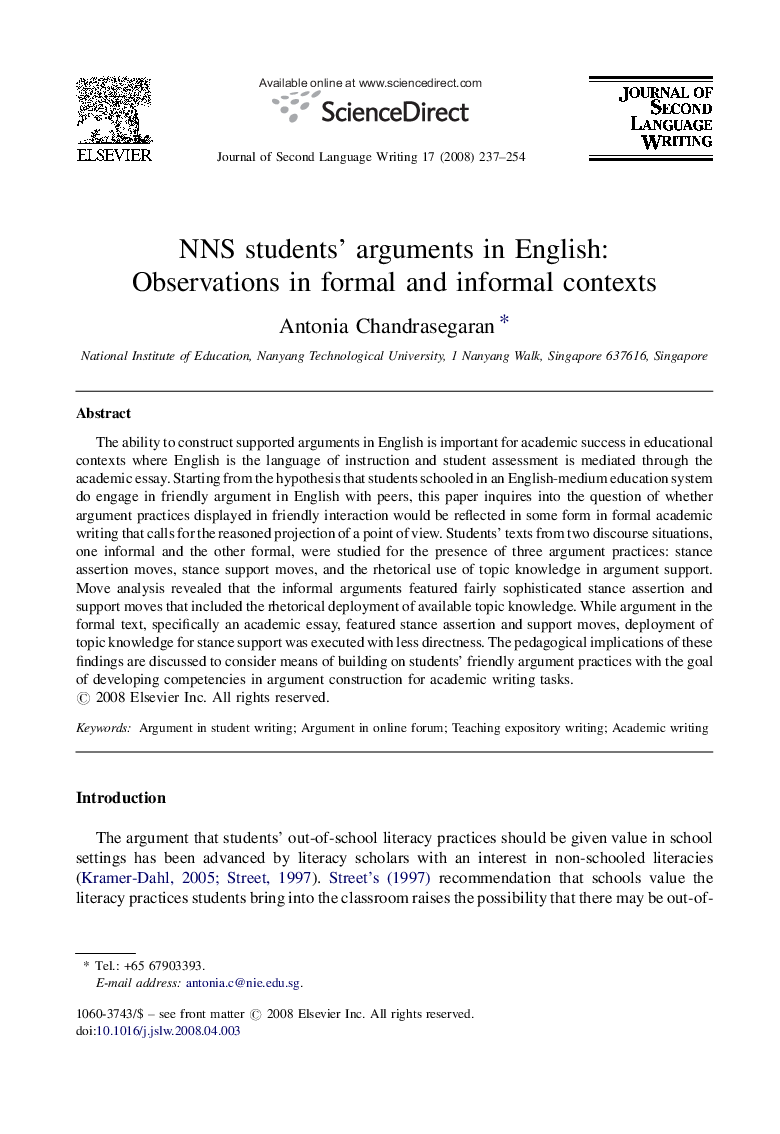| Article ID | Journal | Published Year | Pages | File Type |
|---|---|---|---|---|
| 364259 | Journal of Second Language Writing | 2008 | 18 Pages |
The ability to construct supported arguments in English is important for academic success in educational contexts where English is the language of instruction and student assessment is mediated through the academic essay. Starting from the hypothesis that students schooled in an English-medium education system do engage in friendly argument in English with peers, this paper inquires into the question of whether argument practices displayed in friendly interaction would be reflected in some form in formal academic writing that calls for the reasoned projection of a point of view. Students’ texts from two discourse situations, one informal and the other formal, were studied for the presence of three argument practices: stance assertion moves, stance support moves, and the rhetorical use of topic knowledge in argument support. Move analysis revealed that the informal arguments featured fairly sophisticated stance assertion and support moves that included the rhetorical deployment of available topic knowledge. While argument in the formal text, specifically an academic essay, featured stance assertion and support moves, deployment of topic knowledge for stance support was executed with less directness. The pedagogical implications of these findings are discussed to consider means of building on students’ friendly argument practices with the goal of developing competencies in argument construction for academic writing tasks.
